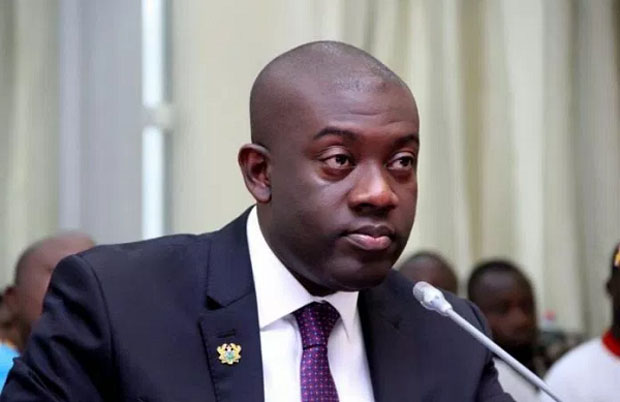Kojo Oppong-Nkrumah
The Deputy Minister of Information, Kojo Oppong-Nkrumah, has announced that the first phase of the agreement between the Government of Ghana and Sinohydro Corporation Limited from China would start by the end of the year with the first tranche of $500 million.
According to him, the first phase would basically focus on the development of very important roads across the country.
He said 30 percent local component had been agreed between the two parties which would translate into a huge turnover from the $2 billion deal for Ghanaian companies that would be involved over the next 15 years.
The deputy minister, who is also the New Patriotic Party (NPP) Member of Parliament (MP) for Ofoase/Ayirebi in the Eastern Region, made these known at a press briefing on Tuesday in parliament to throw more light on the deal which the Minority National Democratic Congress (NDC) had openly opposed in Parliament.
He said important roads like Anwhiankwanta-Obuasi Road in the Ashanti Region, Jasikan-Dodi-Pepeso Road in the Volta Region, Elubo-Enchi-Akotombra Road in the Western Region, Nyinahin-Awiseso in the Ashanti Region and the Wa-Wolugu Road in the Northern Region, Accra-Dodowa dualisation, as well as inner-city roads in Accra, Kumasi, Cape Coast would be constructed.
Interchanges would also be constructed in Tamale and Takoradi.
According to Deputy Minister, the Ghana Integrated Bauxite and Alumina Development Authority (GIBADA) has been tasked to construct a processing plant to refine Ghana’s bauxite which would significantly increase the value of the product.
He said there is an estimated one billion metric tonnes of bauxite ore in the country at Awaso in the Western Region, Nyinahin in the Ashanti Region and Atiwa in the Eastern Region, adding that smelting of the ore by GIBIDA would increase the value of the bauxite from $24 per tonne to $300 per tonne.
He said it was unfortunate that the Minority in Parliament had opposed such a great deal which was struck on a ‘barter’ basis for Sinohydro to provide roads, hospitals, schools, electrification and bridges in exchange for the country’s refined bauxite to the tune of $2 billion.
He said the Minority would realise the importance of the wonderful deal to the overall development of the country when Ghanaians start to benefit.
He said under the agreement, many jobs would also be created for Ghanaians which would positively impact Ghana’s economy.
By Thomas Fosu Jnr


